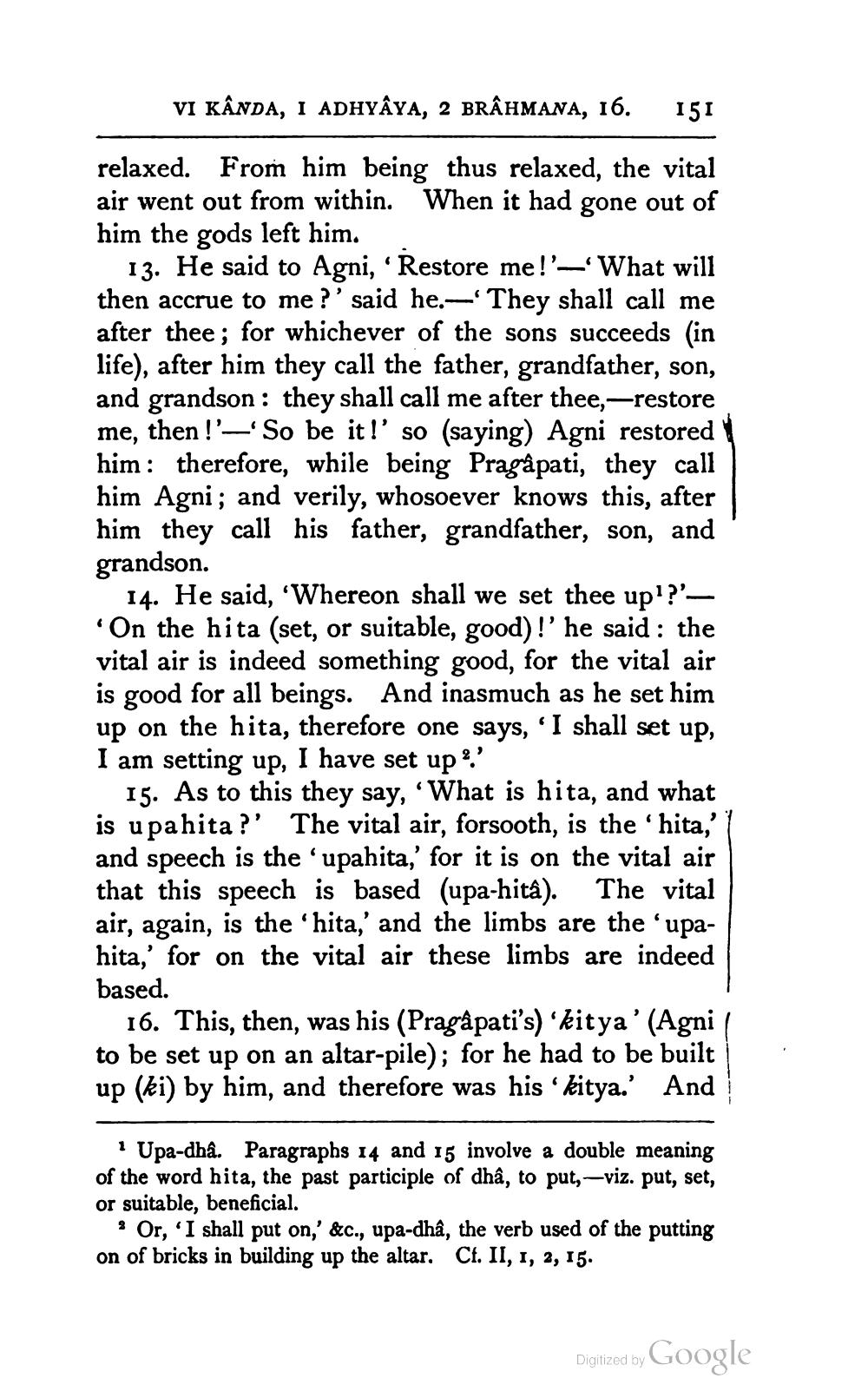________________
VI KÂNDA, I ADHYAYA, 2 BRAHMANA, 16.
151
relaxed. From him being thus relaxed, the vital air went out from within. When it had gone out of him the gods left him.
13. He said to Agni, 'Restore me!'-'What will then accrue to me?' said he. - They shall call me after thee; for whichever of the sons succeeds (in life), after him they call the father, grandfather, son, and grandson: they shall call me after thee,-restore me, then !'—'So be it l'so (saying) Agni restored him: therefore, while being Pragàpati, they call him Agni; and verily, whosoever knows this, after him they call his father, grandfather, son, and grandson.
14. He said, 'Whereon shall we set thee up'?''On the hita (set, or suitable, good)!' he said : the vital air is indeed something good, for the vital air is good for all beings. And inasmuch as he set him up on the hita, therefore one says, 'I shall set up, I am setting up, I have set up?'
15. As to this they say, 'What is hita, and what is u pahita?' The vital air, forsooth, is the ‘hita,'Y and speech is the upahita,' for it is on the vital air that this speech is based (upa-hita). The vital air, again, is the ‘hita,' and the limbs are the 'upahita,' for on the vital air these limbs are indeed based.
16. This, then, was his (Pragâpati's) 'kitya' (Agni | to be set up on an altar-pile); for he had to be built up (ki) by him, and therefore was his kitya.' And
Upa-dha. Paragraphs 14 and 15 involve a double meaning of the word hita, the past participle of dhâ, to put,—viz. put, set, or suitable, beneficial.
? Or, 'I shall put on,' &c., upa-dha, the verb used of the putting on of bricks in building up the altar. Cf. II, 1, 2, 15.
Digitized by Google




